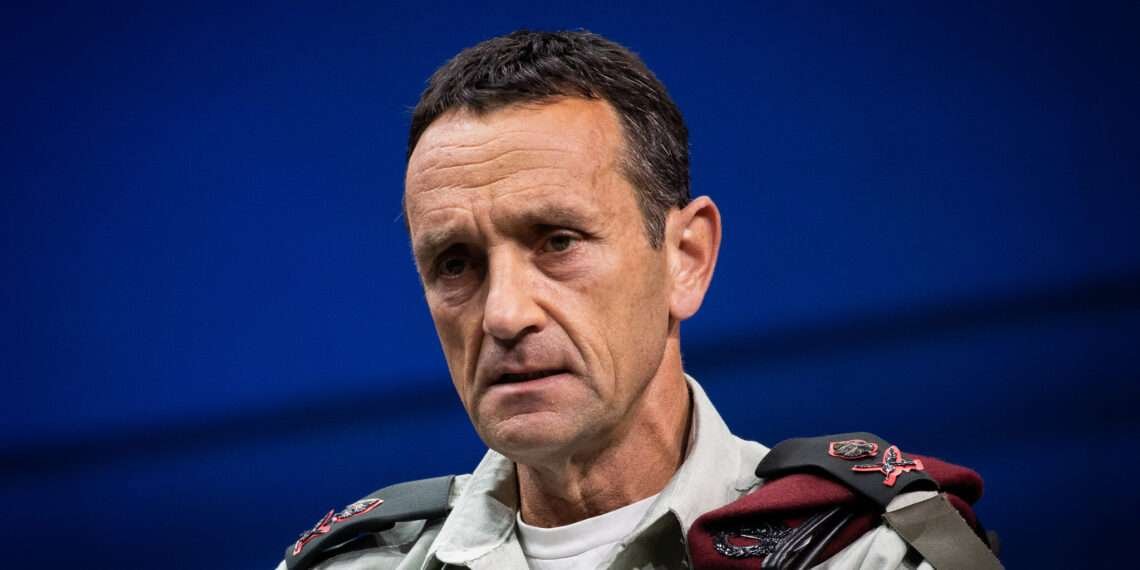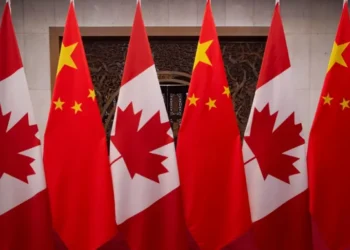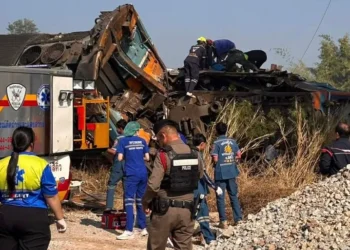The Middle East is no stranger to conflict and bloodshed, with decades of unresolved disputes plaguing the region.
The prospect of a full-blown confrontation between Israel and Iran would only exacerbate the suffering of innocent civilians and destabilize an already fragile region.
The ongoing violence stemming from Israel’s war on Gaza and the proxy conflicts between regional powers have created a tinderbox situation, where any spark could ignite a larger conflagration.
Moreover, the potential for this conflict to spiral out of control and involve other regional actors cannot be overstated.
The head of Israel’s military has said the country would respond to Iran’s weekend attack as several Western countries urged Israel to avoid an escalation of the conflict in the Middle East.
This came as Prime Minister Benjamin Netanyahu summoned his war cabinet for the second time in less than 24 hours over Iran’s missile and drone attack.
“This launch of so many missiles, cruise missiles, and drones into Israeli territory will be met with a response,” Israel’s military Chief of Staff Herzi Halevi said at the Nevatim Airbase in southern Israel.
He did not provide details.
Iran’s attack – launched in retaliation for an Israeli strike on its embassy compound in Damascus earlier this month – has increased fears of open warfare between Israel and Iran and heightened concerns that violence rooted in Israel’s war on Gaza is spreading further in the region.
A U.S-based news agency, citing government officials, reported that they expect to see a limited response from Israel to the weekend’s attack from Iran.
Per the news report, because the Iranian attack did not result in Israeli deaths or widespread destruction, Israel could respond with one of its less aggressive options – strikes outside Iran.
The U.S officials stated that options could include striking inside Syria.
The officials do not expect the response to target senior Iranian officials but to instead strike shipments or storage facilities with advanced missile parts, weapons or components that are sent from Iran to Hezbollah.
The US does not intend to take part in the military response, the officials added.
They do expect Israel to share information about the actions with Washington in advance, specifically if it could have negative repercussions for Americans in the region.
However, amid the saber-rattling and military posturing, it is crucial to recognize the urgent need for restraint and diplomacy.
It is incumbent upon the leaders of Israel and Iran to show restraint and leadership, and to engage in meaningful dialogue to prevent further escalation.
“We’re on the edge of the cliff and we have to move away from it,” Josep Borrell, the European Union’s High Representative for Foreign Affairs and Security Policy, told Spanish radio station.
He added, “We have to step on the brakes and reverse gear.”
Fears Of Gaza Abandonment
Meanwhile, Tania Hary, the Executive Director of Gisha, noted, “With all eyes on the dangerous escalation between Israel and Iran, we’re concerned that Gaza will be abandoned.”
Gisha is an Israeli NGO set up to protect the freedom of movement of Palestinians, particularly those in Gaza.
“The steps that have been taken in the past month to expand access are woefully and dangerously inadequate and don’t meaningfully address the crisis, but whatever is happening is happening only because of international pressure. With so many lives hanging in the balance, the world can’t afford to look away.”
Tania Hary
The US seems so distracted that key officials are barely keeping track of aid shipments that last week they claimed were a priority.
There are also rising concerns that with the world focused on threats from Iran, Israel may follow through on a pledge to send troops into Rafah, the city at Gaza’s southern edge that is the only place in the strip which has not seen intense fighting.
The Israeli military said on Sunday, April 14, 2024, that it was calling up two brigades of reserves “for operational activities on the Gazan front” without clarifying further.
“If these troops are brought into Rafah, it will be a disaster,” said Hikmat al-Masry, an academic and mother-of-one from Gaza City who has taken refuge in the southern city.
“This is the lung through which all the residents of the Gaza Strip breathe. It is the only crossing point for aid to enter. Where will all these many refugees go?” she said.
READ ALSO: Ghana On A Tipping Point As IMF’s Economic Gains Face Possible Derailment























